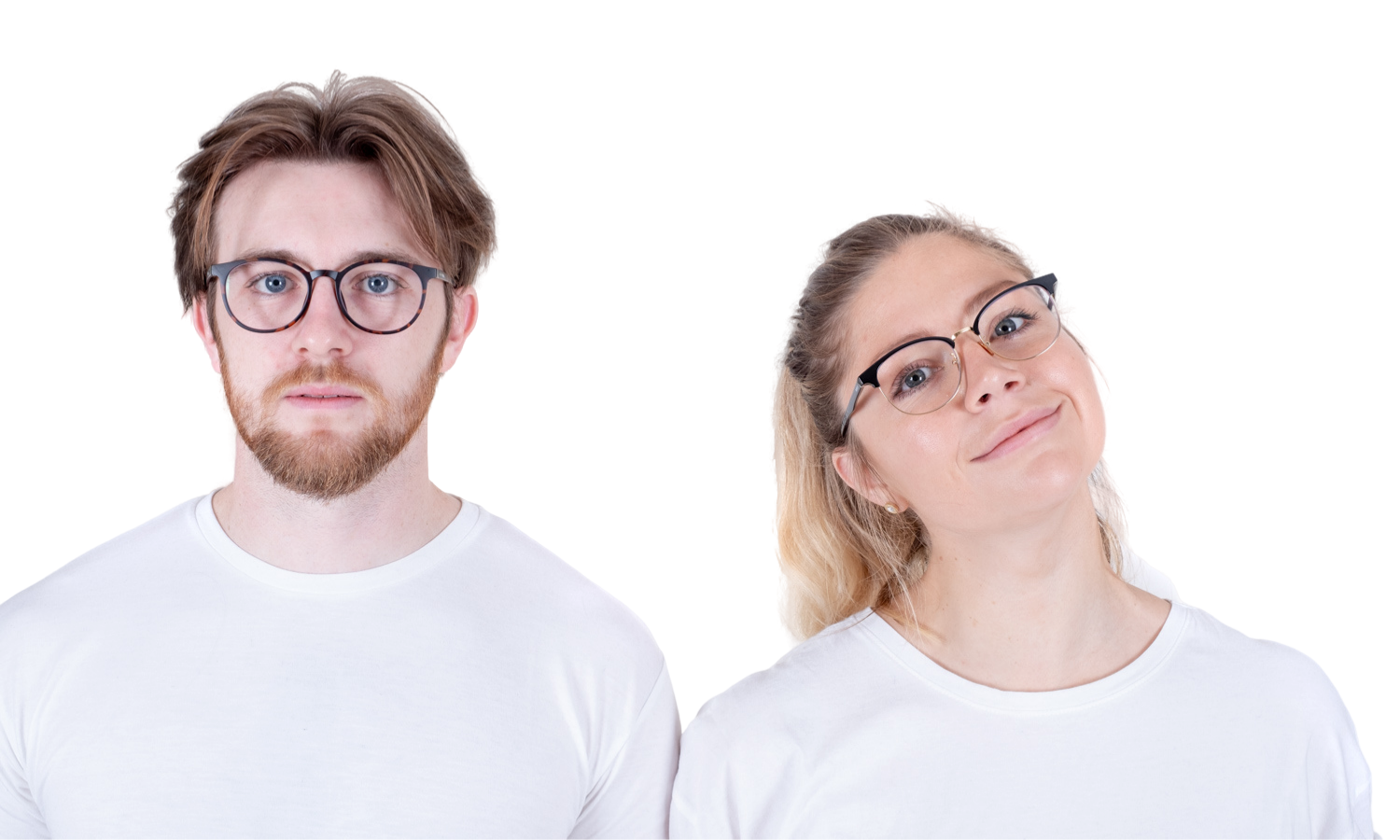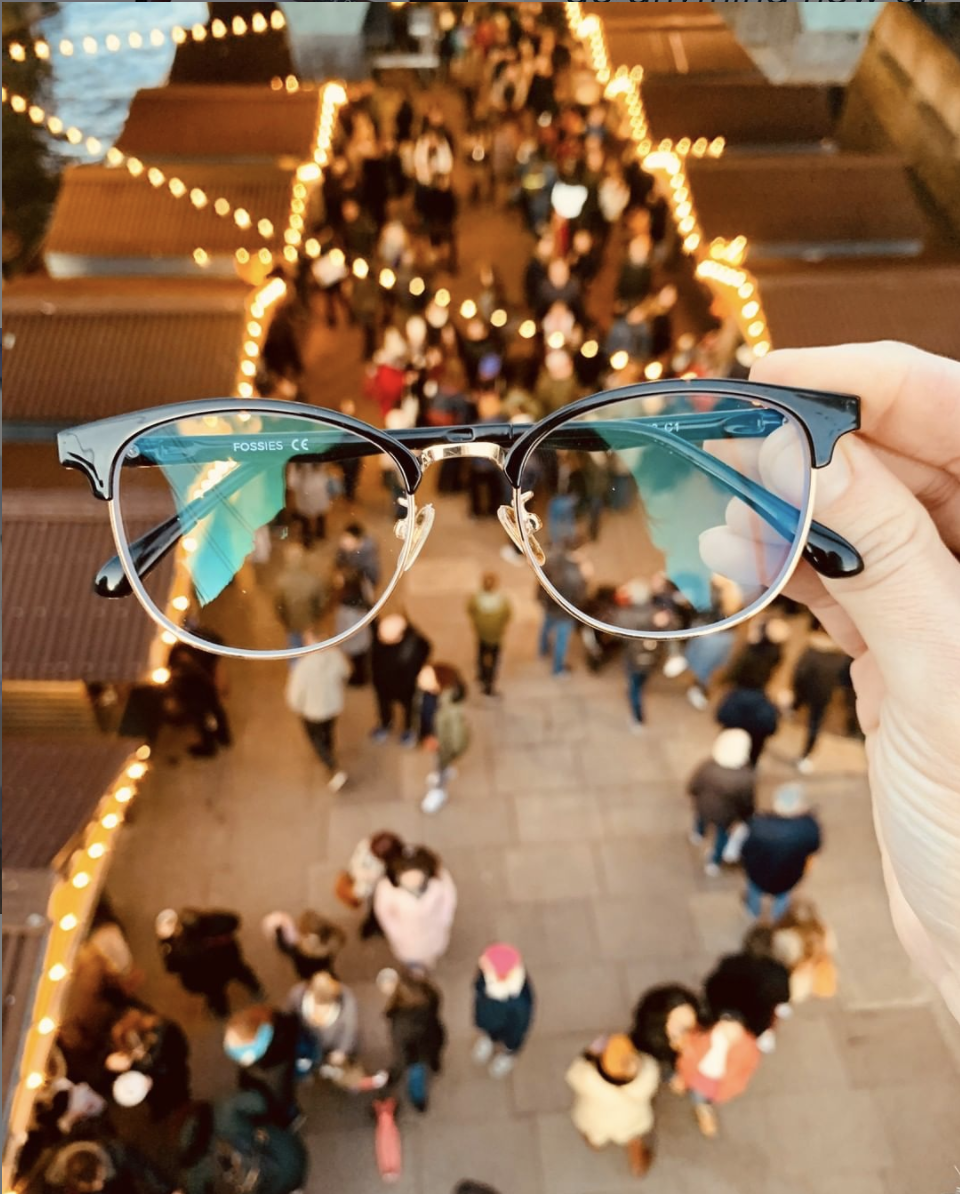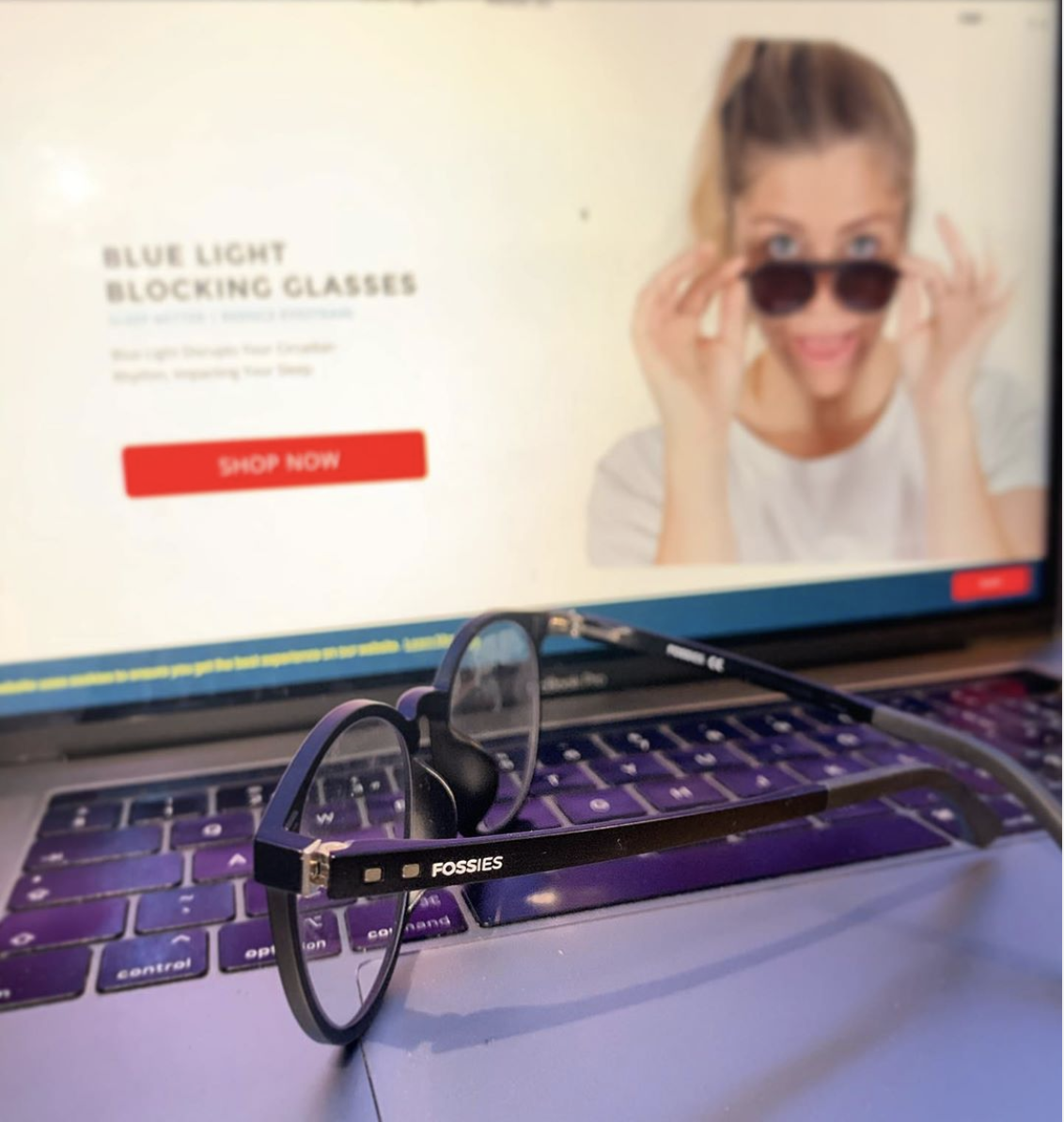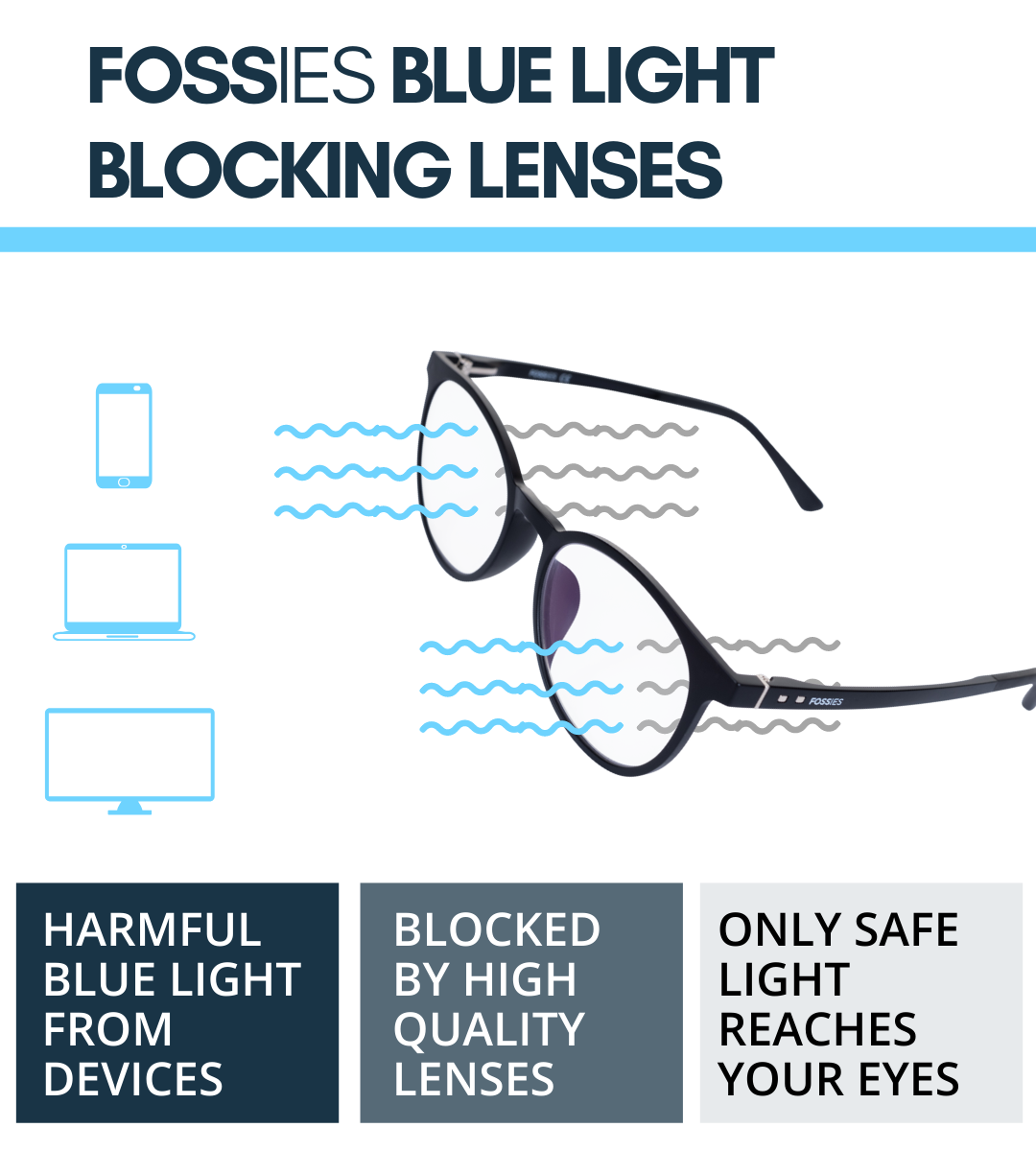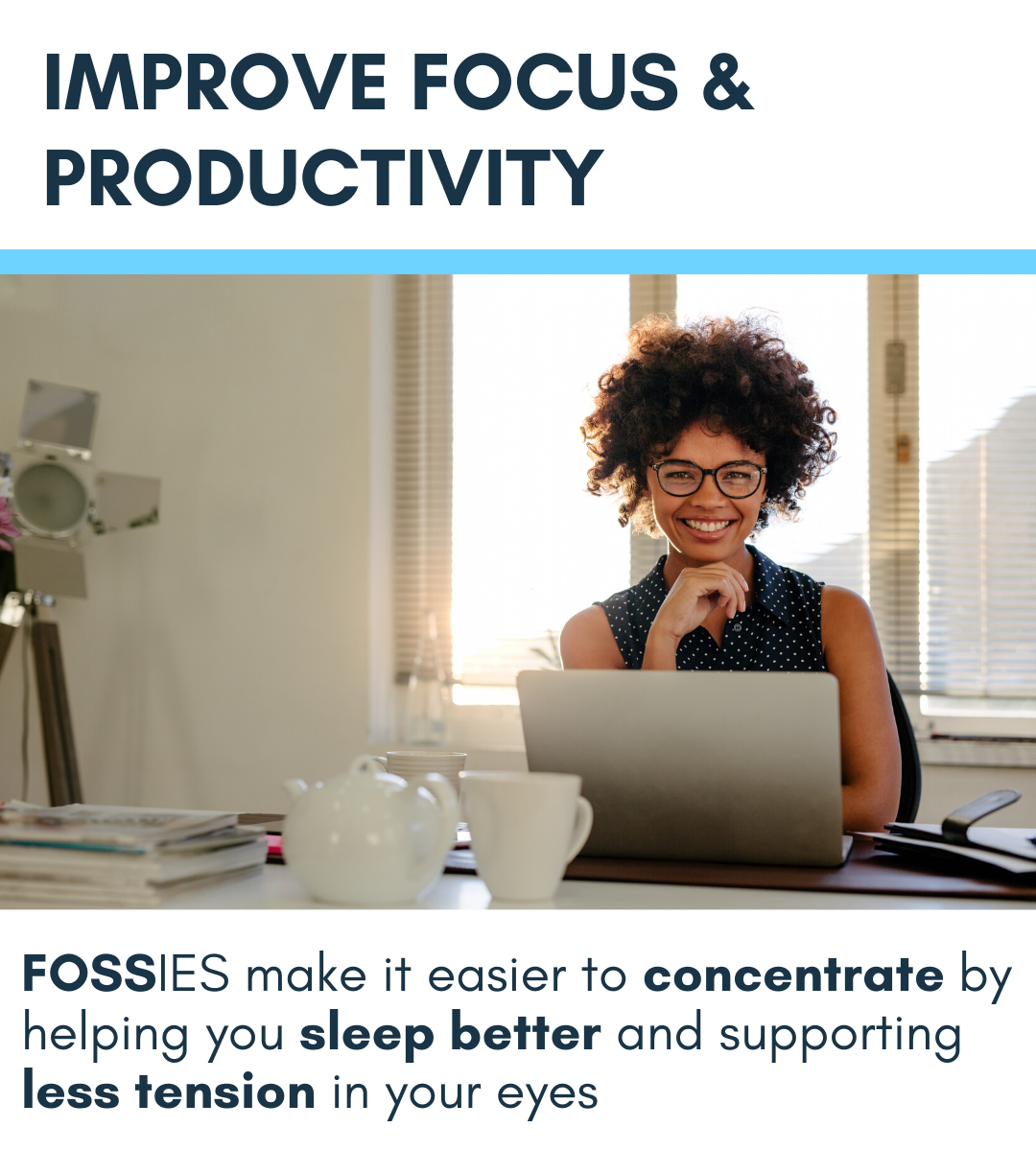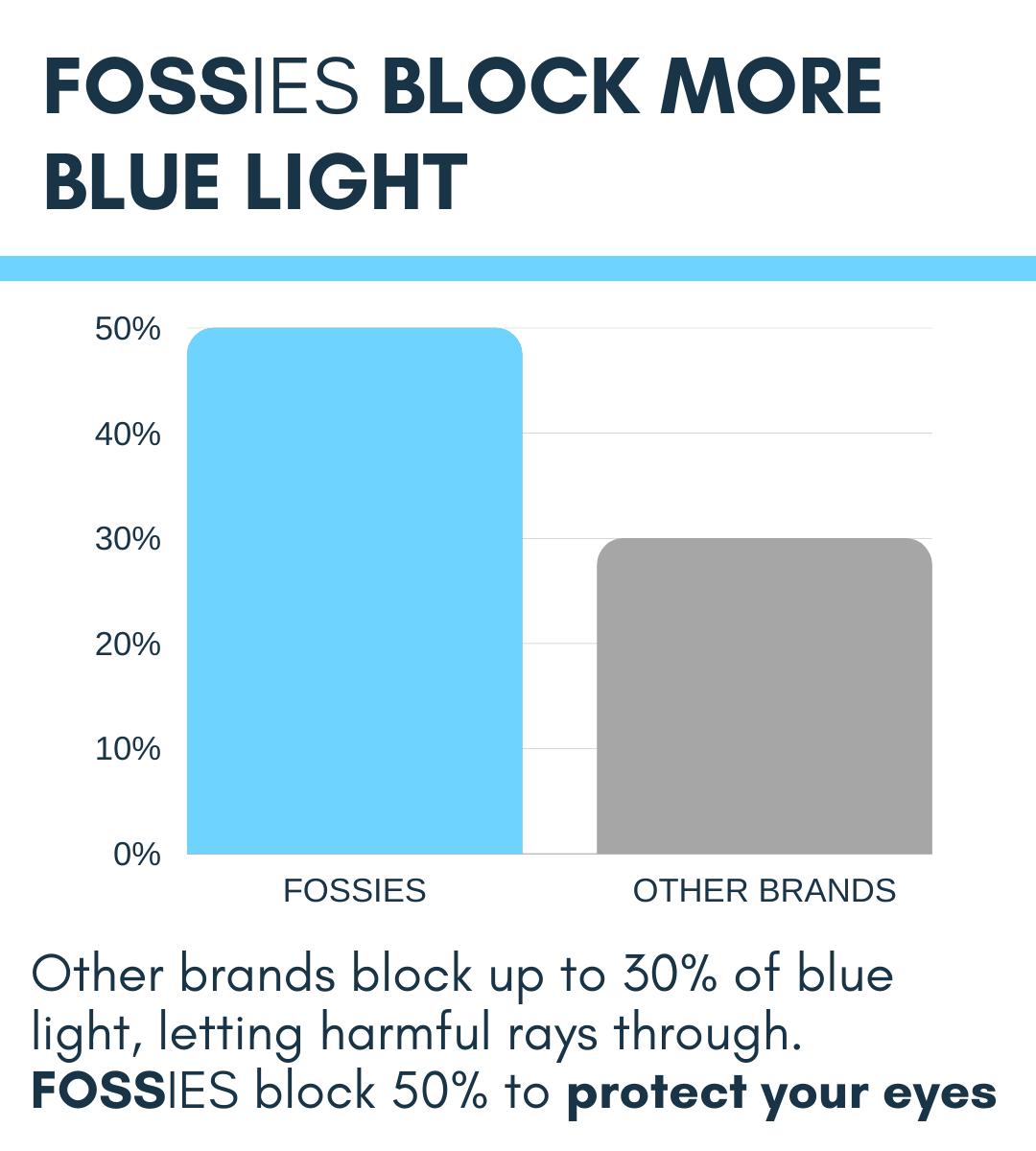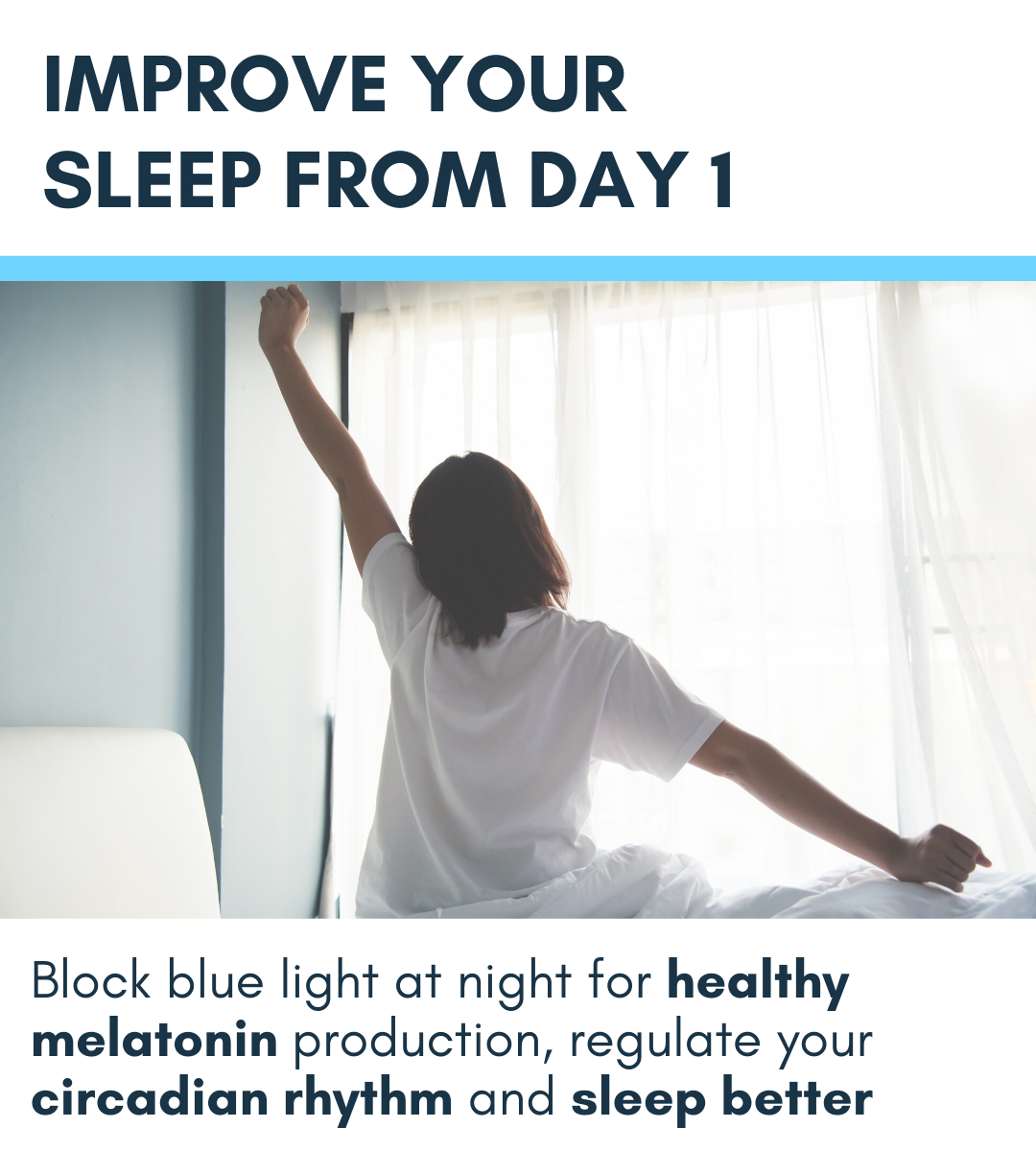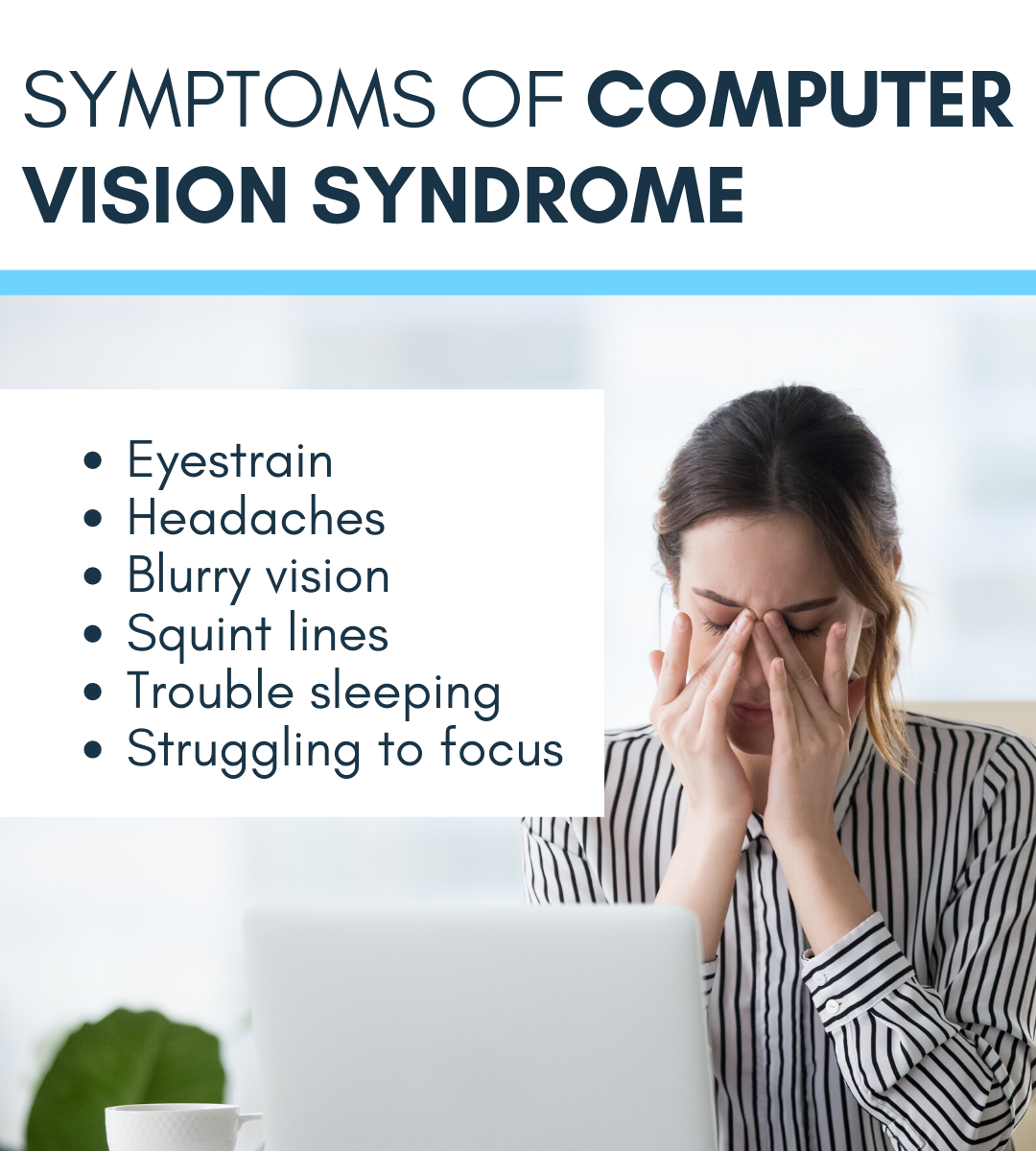Hidden side effects of the COVID-19 lockdown - digital blue light damage
We are using screens more than ever. FOSSIES is urging people to look after their eyes, sleep and wellbeing by reducing blue light over-exposure.
Reduce digital blue light exposure to protect your eyes, sleep and wellbeing
The UK is exposed to more blue light than ever before, and blue light has a dark side. FOSSIES eyewear, a UK brand supplying high quality blue light blocking glasses, is urging people to protect their eyes, sleep and wellbeing by reducing exposure to excess blue light.
We are using screens more than ever before. On a pre-lockdown day, the average adult used their phone for around 3 hours a day, plus time spent on a computer for work, studying and streaming. Now add the increase in video calls, TV and online videos, content creating and gaming. Digital media consumption is increasing, and shows no signs of slowing.
“Many of us exist in a reality where we look at a digital screen more than anything else, it’s a level of blue light exposure we’re not designed to manage”
says Ross Jones, co-founder of FOSSIES eyewear. "We are lucky to be able to stay connected, to work, to be entertained and to keep learning – but we need to be aware of the level of overexposure to blue light and take proper precautions to avoid negative impact on our eyes, sleep and wellbeing”.
What is blue light?
Blue light is everywhere. It mainly comes from the sun, but it also comes from LED backlit devices, like your phone, tablet, laptop & TV. Blue light from the sun helps us to stay alert and improves our energy, but blue light from devices, especially at night, is not so good for us. We have evolved to process blue light from millions of miles away, not right in front of our faces.
What does blue light do?
It hinders your sleep
Blue light controls your ‘sleep-wake’ cycle, also known as your circadian rhythm. Blue light at night makes your body think you’re still on a ‘wake’ cycle, and you don’t produce enough melatonin (the ‘sleep hormone’) needed to fall asleep easily and sleep deeply.
Sleep deprivation affects your psychological state and mental health, which can be amplified at a time of stress and uncertainty. It's important to protect your sleep.
It increases eye strain
Our eyes aren’t very well equipped to filter blue light when it’s coming from right in front of us. Have you ever noticed your eyes getting dry, vision getting blurry, and your head starting to throb after hours looking at a screen? These are common symptoms of digital eyestrain.
Early studies into the effects of blue light on longer term eye damage raise concerns for long term use, and the effects on melatonin production are widely published.
So what can you do?
Turn off devices
“Switching devices off 2+ hours before going to bed at night and limiting screen time to less than 3 hours during the day would be the best solution, but we know that’s just a realistic solution for many people.”
Take eye breaks
Use the 20-20-20 rule for regular eye breaks. Every 20 minutes look at something about 20 feet away for 20 seconds. It helps your eyes to refocus and gives them a break from the screen.
Wear the right eyewear
Wearing the right eyewear for what you're doing can help. FOSSIES blue light blocking glasses block the most harmful blue light rays, reducing your exposure to a much safer level, supporting healthy melatonin production and minimising eye strain.
To learn more about digital blue light and how to protect yourself, visit FOSSIES.co.uk
Press release distributed by Pressat on behalf of FOSSIES, on Monday 8 June, 2020. For more information subscribe and follow https://pressat.co.uk/
COVID-19 Blue Light Blocking Glasses Computer Glasses Digital Eye Strain Video Calls FOSSIES Computing & Telecoms Consumer Technology Coronavirus (COVID-19) Education & Human Resources Health Leisure & Hobbies Lifestyle & Relationships Men's Interest Retail & Fashion Women & Beauty
You just read:
Hidden side effects of the COVID-19 lockdown - digital blue light damage
News from this source:



